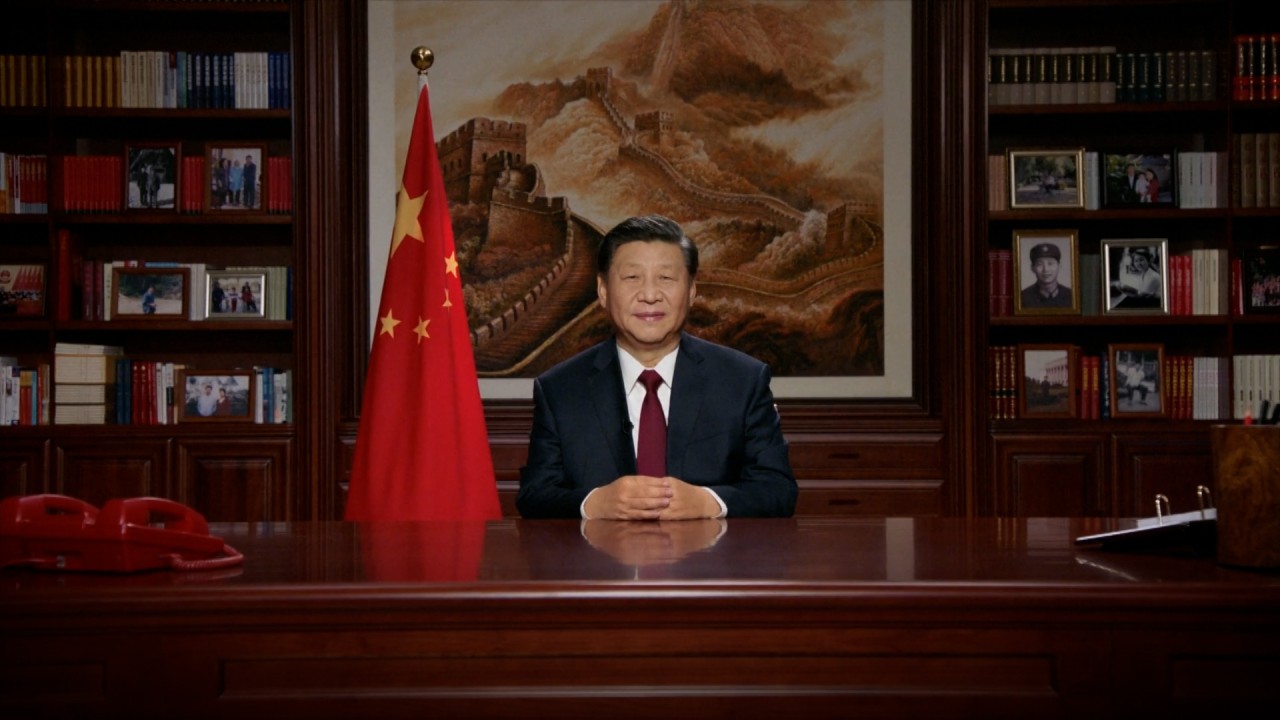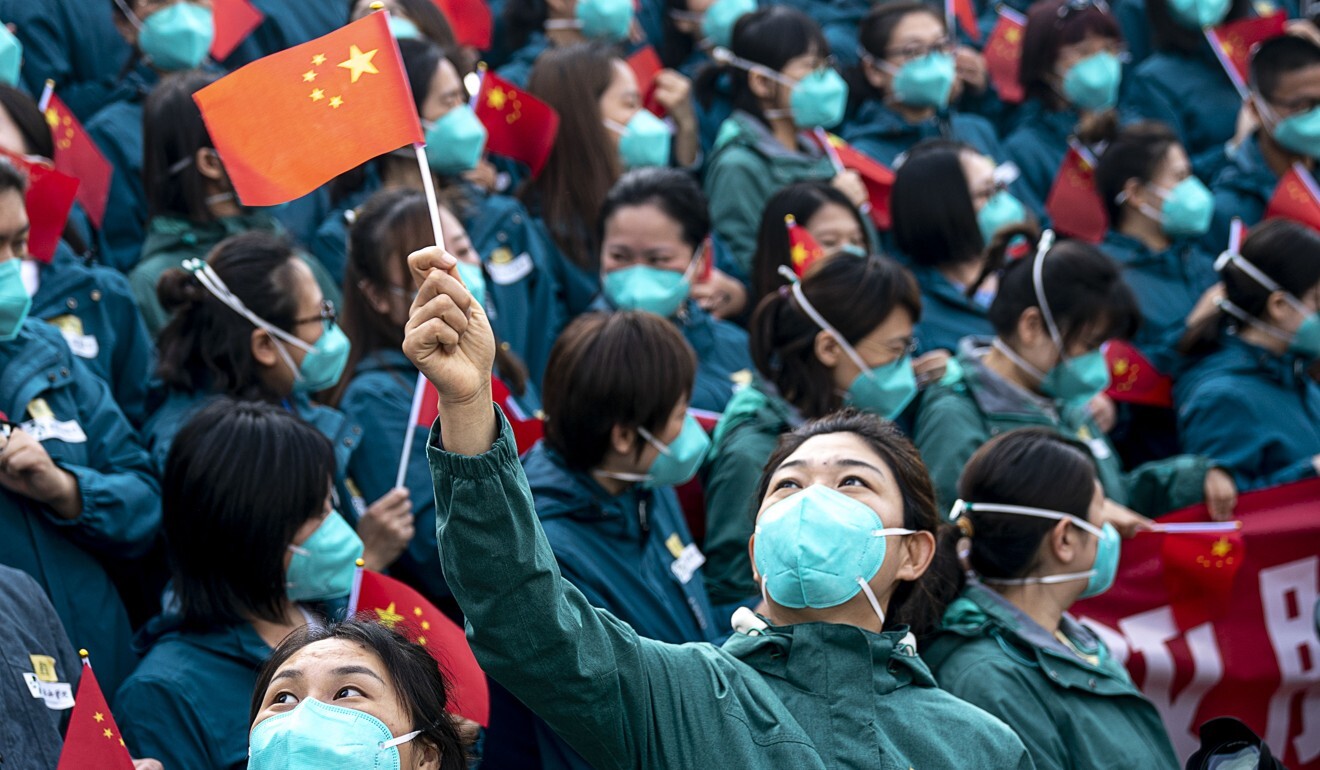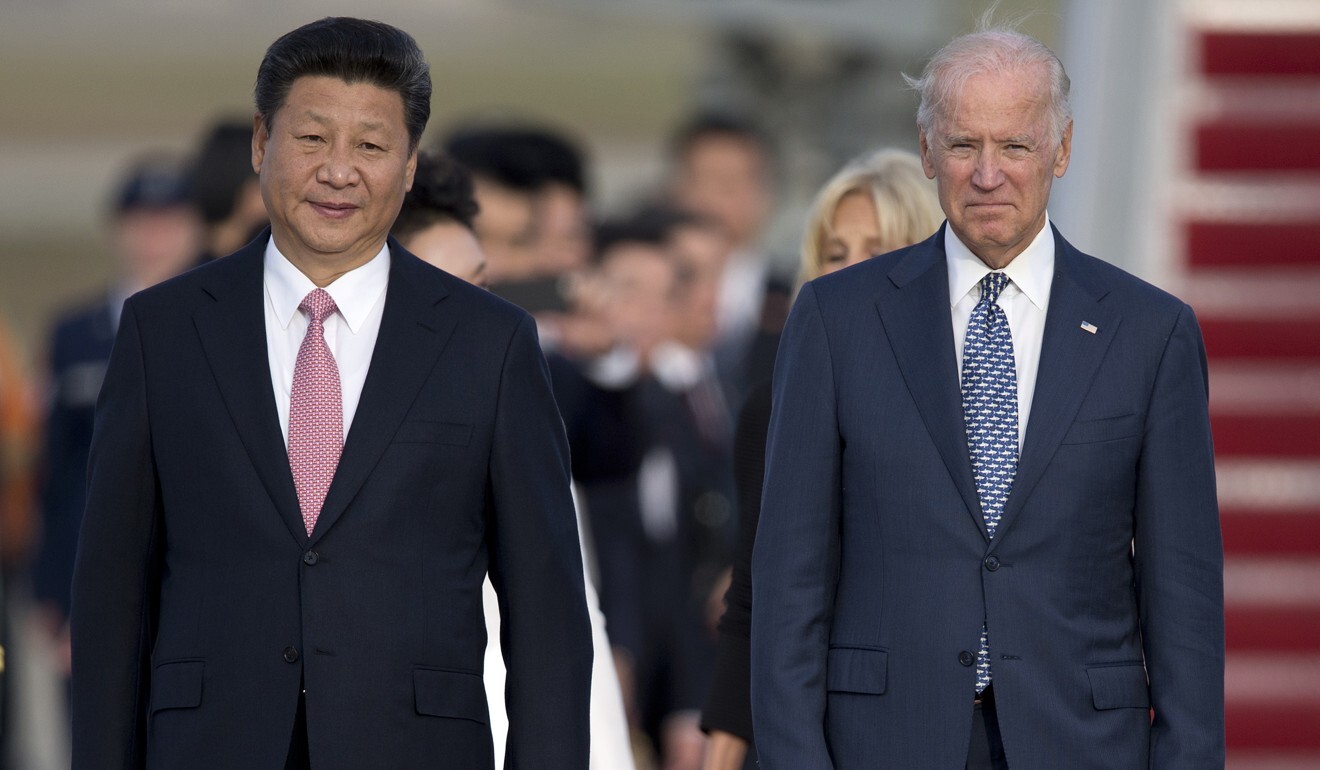
Xi Jinping lauds China’s post-coronavirus economic growth in New Year’s message
- President highlights Communist Party’s centenary on July 1, calling the organisation the hope of the nation
- But no mention of challenges ahead as criticism of the country grows on various fronts
But there was no mention of the challenges to China’s global ambitions, including international criticism of its initial handling of the pandemic.
“We overcame the impact of the pandemic and have achieved great success in disease control as well as social and economic development,” he said from his study in Zhongnanhai, the walled compound where top leaders live.
“Our country is the first major economy to achieve growth, and expected to reach the annual GDP of more than 100 trillion yuan (about US$15.3 trillion).”

01:30
Xi Jinping honours national efforts against Covid-19 pandemic in New Year speech
He thanked China’s doctors, soldiers, scientists and community workers for their efforts to contain the coronavirus, saying he was “proud of my motherland and the Chinese people”.
Shi Yinhong, an international relations specialist at Renmin University in Beijing, said the global pushback against Beijing since the pandemic was likely to continue well into 2021.
“The handling of the coronavirus is not the main reason for the global backlash against Beijing,” Shi said. “A series of elements laid the groundwork for geopolitical and systemic rivalry, including debates about Beijing’s policies in Xinjiang and Hong Kong.”

In 2020, Washington sanctioned Chinese officials and companies it deemed as responsible for Beijing’s politics in the far western region of Xinjiang, where authorities have reportedly built massive internment facilities for Muslim minorities. Sanctions were also imposed over the passage of a sweeping national security law in Hong Kong.
Shi said China-US ties “will ease to a certain extent” under the incoming administration of US president-elect Joe Biden, “but it’s hard to tell whether the easing is significant enough to improve China‘s international environment”.
He also said the party’s centenary might be a flashpoint for ideological clashes with the US, tensions that could resurface at the Tokyo Olympics and in the lead-up to the party congress.
On the diplomatic front, Shi said it remained to be seen just how substantial the outcomes would be from Beijing’s signing of the Regional Comprehensive Economic Partnership, and the CAI with the EU.

“The RCEP has a lot in common with existing frameworks of China and Asean countries,” he said. “And it is not known yet if China’s system would allow it to implement the promise it made to the Europeans.”
Concerns about forced labour in Xinjiang prompted European leaders to demand that China’s concession on the issue be part of its investment deal with Beijing. And a number of European countries have granted political asylum to activists who fled Hong Kong after the national security law.
China-EU investment deal: Beijing relents on human rights but will it shift on trade unions?
Zhao Xijun, from Renmin University‘s school of finance, said international trade was expected to be more favourable in 2021 for China, with coronavirus vaccinations under way in various countries and Washington preparing for a new president.
“US pressure on China will still be high, but I don’t think there could be more sanctions than we saw in the past four years,” he said.

